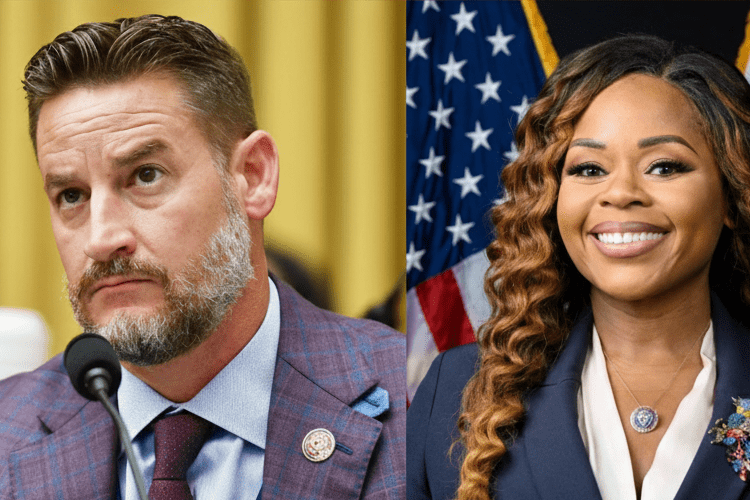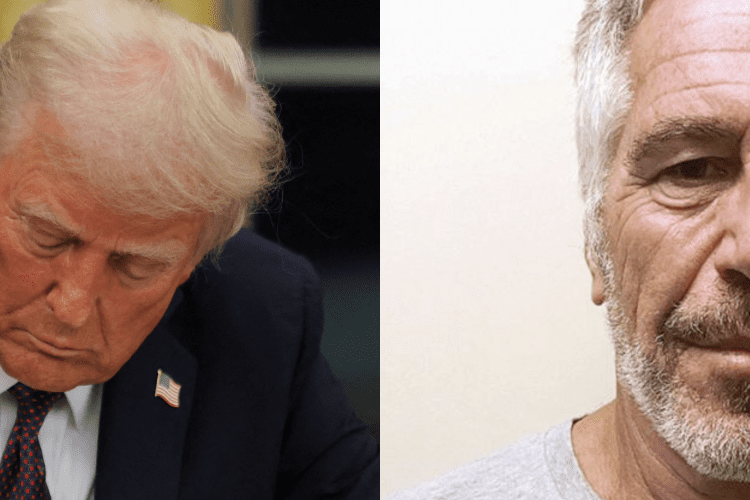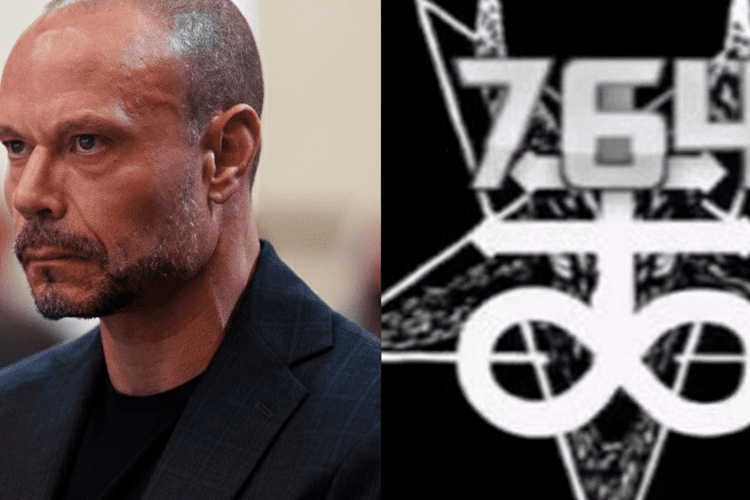Steube Vows to Boot Indicted Dem Cherfilus-McCormick from Congress Over $5M FEMA Theft
In the sun-baked sprawl of Miramar, Florida, where palm fronds sway like weary sentinels over strip malls and family barbecues, the morning of November 19, 2025, dawned with the kind of quiet that precedes a thunderclap. Rep. Sheila Cherfilus-McCormick, the trailblazing physician-turned-politician whose 2022 special election victory had ignited hope in South Florida’s Haitian-American heartland, stepped into a federal courthouse expecting routine business. Instead, she emerged into a whirlwind of flashing cameras and shouted questions, her face a mask of poised defiance as U.S. marshals unsealed an indictment that struck like lightning: charges of stealing $5 million in FEMA disaster relief funds, laundering the money through her family’s healthcare empire, and funneling it into her own congressional campaign coffers. The allegations, detailed in a 28-page DOJ filing that read like a betrayal scripted for heartbreak, painted a portrait of ambition eclipsing ethics—a woman who bandaged pandemic wounds by day allegedly robbing the recovery pot by night. As the news ricocheted across cable screens and smartphone notifications, reaching families still mending from COVID’s cruel toll, a collective gasp rippled through the district she swore to serve. For Cherfilus-McCormick, 45, whose rise from clinic founder to congressional star had felt like destiny’s nod to resilience, this was no mere setback; it was a shattering, the kind that leaves even the strongest souls questioning the ground beneath their feet.

The indictment’s narrative unfolds with the tragic inevitability of a family fortune twisted into felony, a story that tugs at the heartstrings of anyone who’s ever rooted for the underdog only to watch them stumble. In July 2021, amid the delta variant’s desperate surge, Cherfilus-McCormick’s Trinity Health Care Services—a nonprofit lifeline for underserved Broward County communities—received a staggering $5 million overpayment from FEMA for staffing COVID vaccination sites. The funds, part of a $10 billion federal blitz to inoculate the nation, were meant as a bulwark for frontline heroes: nurses logging grueling shifts, clinics stocking life-saving doses, families shielded from the virus’s next wave. Prosecutors allege that instead of flagging the error or returning the excess, Cherfilus-McCormick and co-defendants—including her brother Edwin, 51, a Trinity executive; Nadege Leblanc, 46, a campaign ally; and tax preparer David K. Spencer, 41—orchestrated a scheme of breathtaking audacity. Wires to shell entities, checks laundered through straw donors posing as grassroots backers, even luxury perks masked as charitable deductions—all to swell her 2021 special election war chest, where FEC records show unexplained influxes totaling over $1.2 million. “This wasn’t a clerical slip; it was a calculated diversion of taxpayer dollars meant for the most vulnerable,” U.S. Attorney Jason A. Reding Quiñones said in a somber Miami presser, his words landing like stones in still water. If convicted on all counts—conspiracy to commit wire fraud, money laundering, illegal contributions, false tax returns—Cherfilus-McCormick faces up to 53 years, a sentence that could eclipse her congressional tenure in shadow alone.

Her co-defendants, bound by family and fidelity, now share the storm’s fury: Edwin risks 35 years for his alleged role in rerouting funds; Leblanc, 10 for coordinating the donor facade; Spencer, 33 for falsifying returns that claimed campaign splurges as gifts to her late husband’s foundation. The Cherfilus-McCormick who captured hearts in 2021 wasn’t the villain of these pages; she was the healer, a widow who channeled grief over her pastor husband’s 2018 death into a crusade for maternal health and equity, winning a bruising primary and special election to succeed the legendary Alcee Hastings. Her district, a vibrant mosaic of Haitian enclaves and working-class grit from Miramar to Fort Lauderdale, saw in her a reflection of their own hustle: a doctor who opened clinics in food deserts, a congresswoman co-sponsoring the Momnibus Act to combat Black maternal mortality. “Sheila was our bridge—the one who got us vaccines when lines snaked around blocks,” recalls Marie Duval, a 58-year-old home health aide from Lauderhill, her voice thick with the ache of disillusionment as she folds laundry in a kitchen still stocked with Trinity flyers. Duval’s own FEMA claim for Hurricane Maria damage languished for years; to learn it might have padded a politician’s ads feels like salt in an unhealed wound. “We trusted her with our stories, our struggles. How do you heal that hurt?”

The fallout cascaded with the speed of a viral clip, indictments unsealed amid a flurry of headlines from NBC to the Miami Herald, exposing not just one woman’s alleged folly but chinks in FEMA’s crisis machinery—a $1.4 billion overpayment scandal nationwide, per a 2022 GAO audit, born of hasty verifications in pandemic panic. Cherfilus-McCormick’s camp fired back with a defiant statement from her attorney: “The congresswoman has dedicated her life to serving the underserved and will vigorously defend against these baseless charges.” But in the quiet hours after the courthouse scrum, sources close to her circle describe a lawmaker retreating to her district office, poring over filings with a steely focus born of boardrooms and bedside vigils, her physician’s empathy now turned inward. House Democratic leadership, nursing midterm bruises, distanced swiftly—Minority Leader Hakeem Jeffries issuing a boilerplate nod to “due process” while bracing for ethics ripples that could tarnish the caucus’s compassion brand.
Enter Rep. Greg Steube, the Florida Republican whose Sarasota district hugs the Gulf Coast like a steadfast guardian, his announcement on November 20 a counterpunch laced with the righteous fire of a man who’s seen too many scandals slide into silence. At 47, Steube—former state senator, Army JAG veteran, and father of three—has built a brand on unyielding accountability, his floor speeches a blend of prosecutorial precision and populist punch. “Once House Ethics concludes their investigation or she is convicted, House Ethics will conclude to expel her from Congress,” Steube declared in a statement that thundered across X and Fox affiliates, vowing to file a privileged motion that afternoon to censure Cherfilus-McCormick and strip her committee seats. “Nobody is above the law. I will move to expel her from Congress.” The motion, a procedural sledgehammer requiring only a simple majority in the GOP-controlled House, targets her perch on the Energy and Commerce Committee, where her voice amplified health equity pleas now ring hollow amid the fraud charges. Steube’s push isn’t impulsive; it’s a calculated stand, echoing his 2023 censure bid against Rep. Adam Schiff for Russia probe “deceptions,” a move that rallied the base and burnished his Freedom Caucus cred.

For Steube, whose district weathered Hurricane Ian’s 2022 fury with FEMA aid that arrived too late and too little, the allegations hit with personal resonance—a betrayal of the very relief networks that bind communities in crisis. “Floridians know the sting of delayed help; to think our tax dollars fueled a campaign? Unforgivable,” he told reporters outside the Capitol, his jaw set against the autumn chill, eyes flashing the conviction of a veteran who’s sworn oaths to justice. Steube’s timeline is methodical: the censure motion, forcing an immediate floor vote and committee ouster, buys time for the House Ethics Committee—chaired by Rep. Michael Guest (R-Miss.)—to probe, potentially teeing up expulsion by spring 2026, when Cherfilus-McCormick’s reelection bid looms. Expulsion, requiring a two-thirds House tally, is rare—last invoked against Rep. George Santos in 2023—but Steube bets on bipartisan revulsion, citing precedents like the 2002 ouster of Rep. James Traficant for bribery. “This isn’t partisan; it’s principled,” he insists, his voice carrying the earnest timbre that won him Sarasota voters weary of D.C. games.
The human drama at the heart of this clash evokes a profound sorrow, a reminder that public service, when corrupted, wounds deepest those it claims to lift. Cherfilus-McCormick’s constituents, many first-generation immigrants whose own FEMA quests for hurricane aid mirror the nation’s resilience, grapple with a hero’s heel-turn. In Lauderhill’s bustling markets, where conch shells and plantains symbolize survival, whispers of disappointment mingle with defenses rooted in shared struggle. “She fought for us when no one else did—mamas losing babies to bad care, clinics closing in the pandemic,” says Duval, her callused hands pausing over a cutting board as memories flood. “If true, it breaks my heart, but I pray for truth, not just trials.” The DOJ’s case, built on wire transfers and witness statements from Trinity insiders, paints a picture of familial complicity that’s achingly intimate: brother Edwin, the steady hand in operations; Leblanc, the loyal friend turned fixer; Spencer, the accountant whose ledgers now lie exposed. For Cherfilus-McCormick, widowed young and thrust into politics by loss, the charges sting with irony—a healer accused of harming the healed, her Momnibus advocacy now shadowed by misuse of maternal health-adjacent funds.

Steube’s crusade, while fierce, navigates a House landscape where ethics probes can drag like molasses, the committee’s bipartisan makeup offering Democrats a shield. Guest’s panel, already juggling probes into Rep. Henry Cuellar’s bribery charges and Rep. LaMonica McIver’s assault case, could fast-track review, but expulsion remains a high bar—Santos’ 2023 ouster passed 311-114 amid bipartisan disgust, but Cherfilus-McCormick’s allies, from the Congressional Black Caucus to progressive titans like AOC, vow a fight. “Due process isn’t optional; it’s constitutional,” Jeffries countered in a caucus huddle, his tone measured but eyes steely, aware that Steube’s motion could ripple to his own Epstein-tied scrutiny. For Republicans, it’s red meat: Steube’s play bolsters Florida’s GOP bloc, where Gov. Ron DeSantis eyes 2028 and border hawks like Steube rally the base against “lawless Democrats.” Yet beneath the partisan posturing lies a universal ache—the erosion of trust in leaders who promise relief but deliver regret, a call for a Congress where accountability isn’t selective but sacred.
As November’s light fades, with Cherfilus-McCormick’s arraignment set for December 5 in Miami and Steube’s motion teed up for debate, the story hangs like a gathering storm over the Everglades. For Duval and her neighbors, it’s a plea for fairness: investigate, yes, but heal too, remembering the doctor who once vaccinated their elders under tented tents. For Steube, it’s a vow unbroken—the law as leveler, expulsion as justice’s hammer. In the end, this isn’t just a Florida feud; it’s America’s mirror, reflecting the fragility of faith in flawed servants, the resilience of those they fail, and the unyielding march toward truth. As the gavel looms, one hopes for not just verdicts, but voices amplified—the survivors of storms literal and figurative, reminding us that in the body politic, every wound demands care, every betrayal a balm of belief restored.


